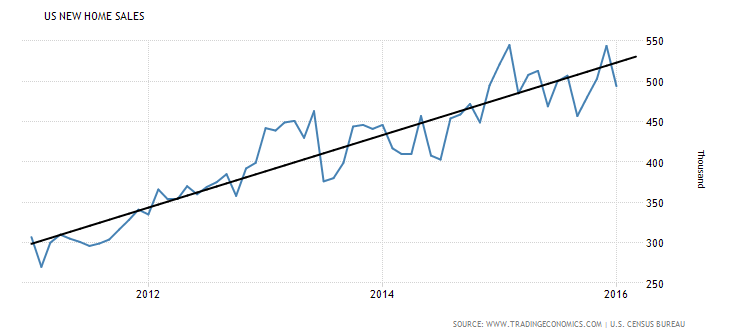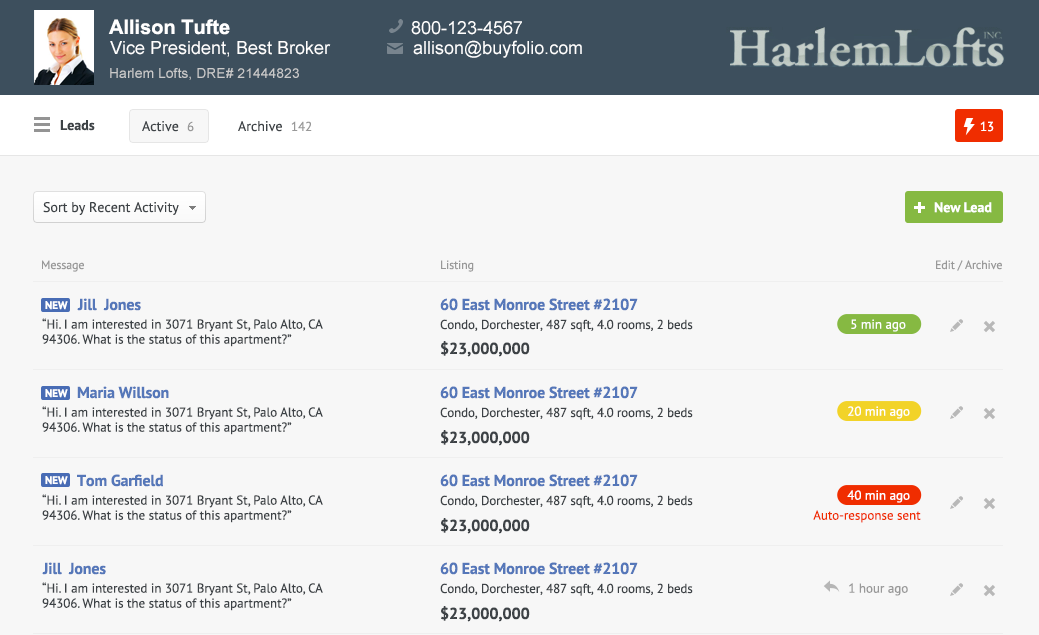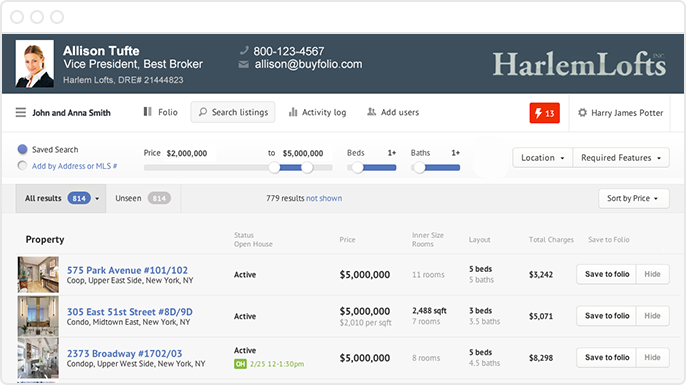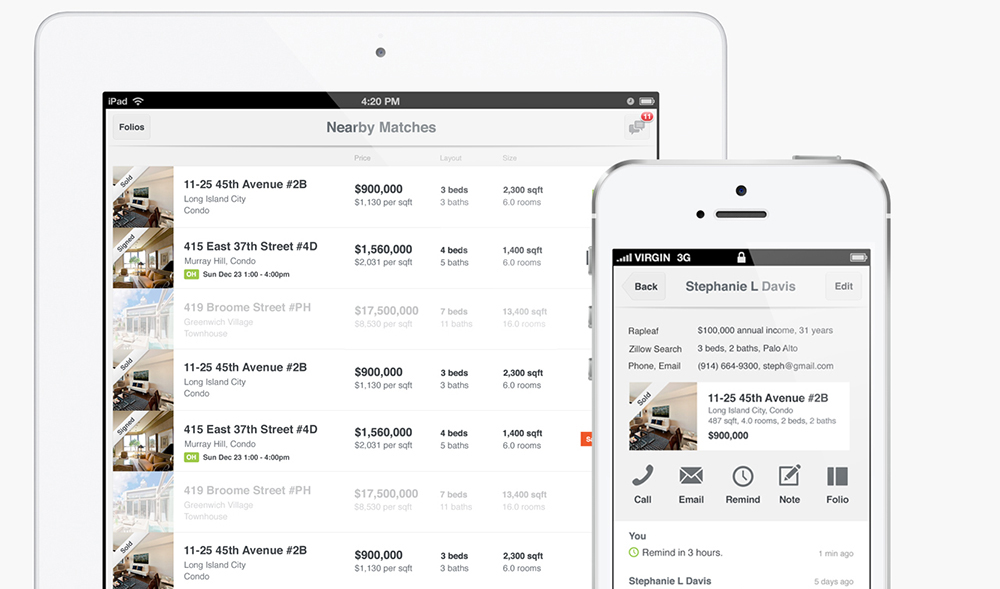What are real estate apps needed for?
Real estate business is often associated with just selling houses and apartments. However, the real estate world is much more diversified than it may seem. It involves not only buying, selling and renting residential homes but also various operations with commercial buildings, storage facilities and other kinds of properties, as well as handling all the complex interactions among realtor, property owner and consumer.
Moreover, this business is continuously growing and evolving. US new home sales have been increasing for the last 5 years and it is projected to be around 590.00 thousand in 2020 according to Trading Economics forecast.

Existing home sales in US also tend to grow. Realtor.com estimates that 2016 will be the best year for the housing market with a rise in sales that has not been seen since 2006 - 6 million existing and new homes will be sold within the year.
There are many other notable trends in the real estate, such as crucial generational shifts, including the older millennial buyers (with their addiction to using digital technologies in everything) entering the real estate scene and making up the largest demographic (30%) of home buyers in 2016.
Obviously, the dynamic and versatile nature of real estate business requires relevant software system for managing business processes, including communication between all involved parties, operating the huge databases of customers and properties, handling a lengthy process of searching, selecting and completing the property deal, etc.
Many of these operations can be automated, and they actually should be automated. Otherwise, it is extremely difficult to keep track of all the contacts, emails, property details, documents and other stuff associated with the real estate transactions. So, whether you are a real estate broker or just a person interested in a single property deal, a good software application may significantly ease your life. Let's review some key aspects of real estate software development.
Specifics of real estate web application development
In the easiest case, you may use some existing applications for real estate or build a simple website on a CMS platform like WordPress. But like in any business, if you want to make money in real estate, you have to offer your customers something special and this usually requires developing a custom web application.
Let's review some important aspects of web application development for real estate:
Lead generation and marketing.
The real estate industry is flooded with millions leads but not all of them result in sales. Processing all the available leads manually is nearly not possible and real estate agents are losing many of those leads. The web-based software system can help establish and manage an efficient process for driving and capturing home buyer/seller leads, cultivating them and closing more transactions.

Automated workforce.
The prime benefit of introducing a web application in the property business is an ability to automate and better organize many of daily tasks performed by workers in real estate industry and, therefore, reduce time and cost of carrying out these activities manually. Modern web technologies, embedded in a smart well-designed software system, can efficiently serve such business areas as:
- real estate brokerage for managing multiple activities associated with property buying, selling or renting - searching and negotiating properties, client management, communication, branding and advertising;
- property management for automating interactions between clients and property managers, including tenant screening and selection, lease administration, tracking service requests and maintenance, contract management, rent collection and insurance;
- real estate data services for aggregating, storing, sharing and analyzing property data;
- property construction, investment management and other sectors of real estate.
However, if you are going to develop your own real estate web application, do not try to implement all functionality necessary for your business at once. Proper automation of all business workflows and processes involved in real estate requires an elaborated software system that should be developed gradually with a careful QA and testing, and tuning of each new module.
Advanced user experience.
User experience in custom real estate web development has gone far beyond just a pretty interface. The full-functional real estate systems incorporate a lot of quite complex and interconnected business processes. Yet, both consumers and business users expect all the interactions to be seamless and they want the application to anticipate their needs. Real estate applications with excellent usability bring more collaboration, better information flows and increase overall efficiency of the business.
When our team was engaged in creating Agentfolio, formerly one of the largest real estate applications in New York and neighborhood states, a special attention was given to creating very clean and intuitive interface. Our designers had to employ exceptional UI/UX skills to work out an optimal workflow that tied all internal sections and behaviors of this extensive app together. We also organized diverse property data into handy views, so that users could easily see and compare all housing parameters.

The refined usability of Agentfolio was one of the drivers of its success and this is something critical to keep in mind when building web apps for realtors and real estate agents.
Devices mesh.
The realm of devices involved in handling property-related information flows and transactions is rapidly expanding, extending beyond traditional mobile devices to include wearable gadgets, sensors, drones, and other smart devices. Real estate website developers can adopt these technologies and integrate them with their business systems to boost both the productivity of agents and the usability for consumers.
These developments align with emerging trends such as the Internet of Things (IoT) and Bring Your Own Device (BYOD), which have permeated various industries, including real estate. In the housing sector, where agents are frequently on the move, these trends offer greater flexibility and enable all parties involved to collaborate effectively from any location or device. Thus, agents can access listings, check emails, contact clients, and perform other tasks instantly, regardless of the device they prefer, without being tethered to their desks.

Everything in this cross-platform digital maze produces, uses, modifies and shares information. The effective real estate software collects all this data, arranges it and incorporates into the business process. It requires developing platform specific custom applications, as well as sophisticated data techniques and connection models for an efficient interaction between all connected systems.
Big data and analytics.
Real estate web applications have to deal with massive and constantly growing databases, process huge amounts of data and they should do it fast. The vast raw data about available properties, home buyers and home sellers arrives from multiple sources (MLS and other property databases, CRM systems, mass media, etc.) in various forms (text, audio, video) and data formats. It should be stored and served up so that the users can easily pull any necessary information at any time.
Furthermore, modern real estate software does not simply provides computations and functionality. New technologies allow to harness the power of big data, analyse the immense wave of information and provide insights for smarter business decisions. A great example of big data at work is Zillow, a leading U.S. real estate player, that thrives on big data analytics for housing prices, rental data, mortgages and other real estate assets.
So, the requirements to database performance and capacity in real estate are very high and call for using advanced data processing technologies.
Individual players.
Not all people are lucky to have happy experience with the broker and this induces the development of real estate platforms for individual home buyers and sellers. One of them - ListingDoor - was recently called "The Uber for Real Estate sales" by Forbes. This real estate platform provides home sellers with necessary market analytics, allows creating a custom website for their property, promotes it via popular real estate listing sites, supports social sharing and gives other tools for selling homes.
Sure, brokers are not out of the game yet but it is definitely a good time for them to think if their services and technology systems are ready to meet the growing requirements of the market.
Related read: How to Create a Real Estate Web Application
Finally
The explosive growth of mobile technologies and digital nature of modern life are pushing the housing industry to significant and fundamental changes. It requires from the market players to watch the latest industry trends and apply them to improve business processes, which is hardly possible without well-designed and well-implemented web applications.
Sometimes existing or pre-built solutions may serve real estate businesses well but an ideal solution can rarely be found among the standard ones. As for building custom real estate web applications, it is necessary to keep in mind, that it requires time and the technology stack should be selected with great care, to provide both stability and adaptability to changes on the go. Otherwise, the project owner risks to create a web app that complicates things to users instead of simplifying them and falls behind the competitors.
About author: Dariya Lopukhina is an online marketer, tech enthusiast and writer. She is a part of the Anadea team where we help entrepreneurs, startups and companies digitally transform and grow. Connect with her on Twitter and LinkedIn.





